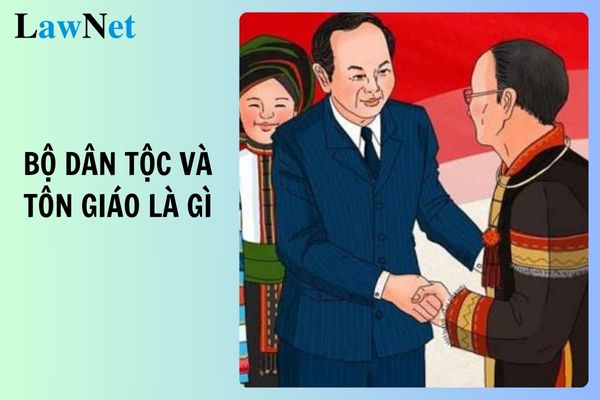What is the Committee for Ethnic Minority Affairs of Vietnam? What is its organizational structure?
What is the Committee for Ethnic Minority Affairs of Vietnam? What is its organizational structure?
According to Article 1 of Decree 41/2025/ND-CP, the Committee for Ethnic Minority Affairs of Vietnam is a governmental agency, responsible for state management in the sectors and fields of ethnic affairs; beliefs, religions, and state management of public services within sectors and fields under state management by the ministry as stipulated by law.
The organizational structure of the Committee for Ethnic Minority Affairs of Vietnam consists of 13 entities:
-
Department of Planning and Finance.
-
Department of Personnel Organization.
-
Department of Legal Affairs.
-
Department of International Cooperation.
-
Inspectorate.
-
Office.
-
Government Committee for Religious Affairs.
-
Department of Propaganda on Ethnic and Religious Affairs.
-
Department of Policy.
-
Center for Digital Transformation.
-
Academy of Ethnic Affairs.
-
Newspaper of Ethnic and Development.
-
Journal of Ethnic and Religious Studies.

What is the Committee for Ethnic Minority Affairs of Vietnam? What is its organizational structure? (Image from the Internet)
Are pre-university school teachers in Vietnam required to be able to analyze key aspects of Vietnam's state administrative apparatus?
Under Subsection 2, Section 2 of the Retraining Program under the standards for the professional title of Grade III pre-university school teacher issued together with Decision 4855/QD-BGDDT in 2018, the provisions are as follows:
2. Specific Objectives
a) Analyze the fundamental aspects of the political system, state administrative apparatus, and education system of Vietnam;
b) Be able to apply the Party's guidelines, State policies, and laws, particularly in the field of education in general and pre-university education specifically, to the task execution process;
c) Proactively apply and continually refine basic skills to carry out teaching tasks, educate students, and fulfill the responsibilities of pre-university school teachers;
d) Utilize professional expertise to perform duties appropriate to the professional title standards of Grade III pre-university school teachers as stipulated in Circular No. 30/2017/TT-BGDDT dated December 5, 2017, of the Ministry of Education and Training, which defines the professional title standards for pre-university school teachers (abbreviated as Circular No. 30/2017/TT-BGDDT).
After undergoing training, pre-university school teachers must meet at least one of the minimum requirements - to be able to analyze the fundamental aspects of the political system, state administrative apparatus, and education system of Vietnam.
Specifically, in Module 1 of the Retraining Program under the professional title standards for teachers, Grade III pre-university school teachers will be trained in the following knowledge:
- The political system of the Socialist Republic of Vietnam
+ Overview of the political system in Vietnam;
+ Communist Party of Vietnam;
+ State of the Socialist Republic of Vietnam;
+ Political-social organizations.
- Nature of the State of the Socialist Republic of Vietnam
+ Nature and political policies of the State of the Socialist Republic of Vietnam;
+ Structure of the State of the Socialist Republic of Vietnam;
+ Functions of the State of the Socialist Republic of Vietnam;
- Organization of the state apparatus of the Socialist Republic of Vietnam
+ Concept of the socialist state apparatus;
+ Principles of organizing the state apparatus of the Socialist Republic of Vietnam;
+ Organizational structure of the state apparatus of the Socialist Republic of Vietnam.
What are the 05 principles of legal dissemination and education in Vietnam?
According to Article 5 of the Law on Dissemination and Education of Law 2012, the 05 principles of legal dissemination and education in Vietnam are specified as follows:
1. Accuracy, sufficiency, clearness, intelligibleness, practical.
2. Being timely, regularly, having focus of interest or main point
3. Making variety forms of legal dissemination and education, being suitable with demand, age group, qualification of subjects being popularized, educated on law and and being suitable with the good traditional, customs and habits of national.
4. Linking execution of law, execution of duties about social-economical development, assurance of defense and security of national and localities and life each day of people.
5. Closely coordination between agencies, organizations, families and society.

